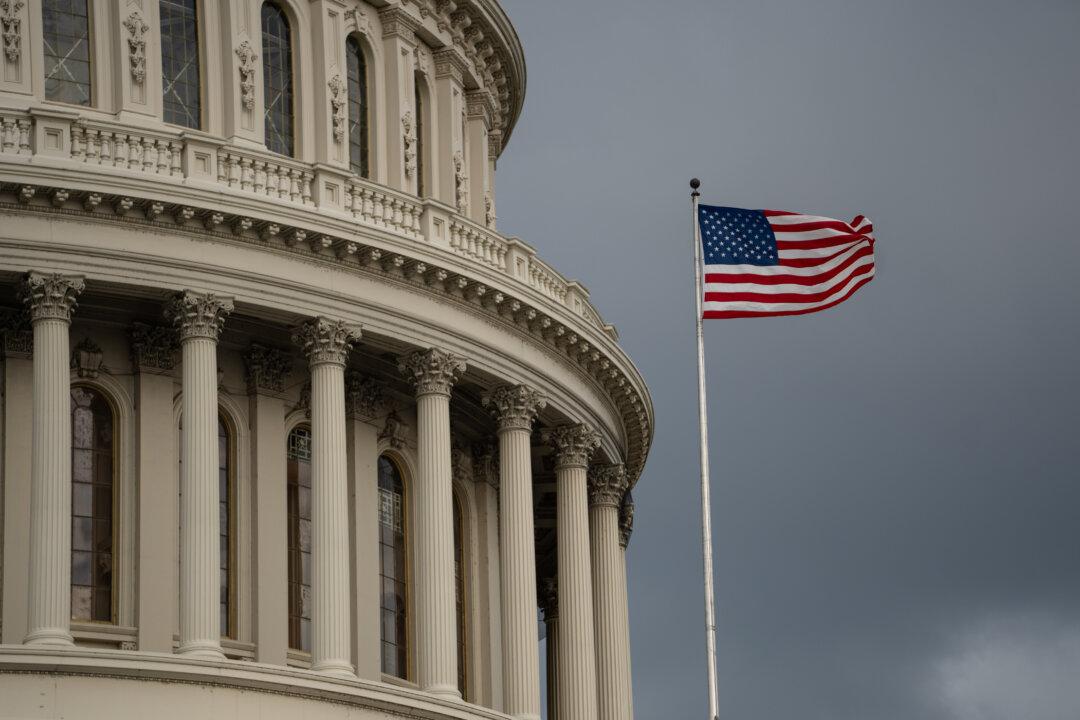Senate Democrats are preparing to force the full reading of the nearly 1,000-page Republican tax and spending package on the Senate floor, a move that could delay consideration of the Trump-endorsed bill by at least half a day.
The procedural gambit threatens to temporarily slow Republican momentum, just as Senate GOP leaders were hoping to move swiftly into a marathon amendment session, known as a vote-a-rama, after a procedural vote clearing the way for floor debate.
The Democratic plan to force a reading of the bill came as Republicans were busy whipping up support for the legislation, bracing for what increasingly appeared likely to be a razor-thin 50–50 vote on the motion to proceed—one that would require Vice President JD Vance to break the tie.
GOP leaders spent Saturday working to secure backing from key holdouts, even as several senators made their positions clearer. Sens. Susan Collins (R-Maine) and Josh Hawley (R-Mo.) each signaled they would support advancing the bill, citing last-minute changes unveiled Friday that addressed some of their earlier concerns.
Collins said she was prepared to vote to proceed out of deference to Senate Majority Leader John Thune (R-S.D.) but emphasized she still has serious reservations and plans to offer amendments to reshape parts of the legislation.
Hawley, who had previously raised alarms about potential Medicaid cuts, said he would back both the procedural motion and the bill itself after securing a delay in changes to the federal cap on Medicaid provider taxes—a shift he said would mean higher federal Medicaid funding for Missouri in the coming years.
Sen. Tim Sheehy (R-Mont.) also announced Saturday that he would vote yes on the motion to proceed, after receiving assurances from Republican leaders that Section 50301—a provision calling for the sale of certain federal lands—would either be stripped out via floor amendment or removed by the Senate parliamentarian under the Byrd Rule if deemed out of order under reconciliation.
Meanwhile, other Republicans remained opposed. Sens. Rand Paul (R-Ky.), Thom Tillis (R-N.C.), and Ron Johnson (R-Wis.) have all indicated they would vote against the bill—whether on the procedural motion or on final passage. Paul objected to the inclusion of a $5 trillion increase in the federal debt limit, while Johnson argued the measure does not go far enough to reduce the deficit. Tillis has expressed broader concerns with the scope and substance of the legislation.
The uncertainty left Republicans in a precarious position, scrambling to secure the final votes needed to push President Donald Trump’s economic and tax agenda closer to the finish line.
Trump, during an event at the White House on June 26, highlighted the tax cuts and immigration funding efforts included in the bill, describing it as “one of the most important pieces of legislation in the history of our country.”
The legislative package will “secure our borders, turbocharge our economy, and bring back the American dream,” the president said.
White House press secretary Karoline Leavitt said earlier that day that Trump expects the bill to reach his desk by July 4, and Thune has set the same deadline for the Senate to pass it.
The bill, spanning nearly 1,000 pages, aims to make permanent parts of Trump’s 2017 tax cuts while introducing new tax breaks, including exempting up to $25,000 in tip income for workers earning under $150,000. It would also raise the cap on state and local tax deductions from $10,000 to $40,000 through 2029, with limits for higher earners.
The legislation proposes rolling back clean energy incentives, ending tax credits for electric vehicles after September 2025, and curtailing benefits for wind, solar, and hydrogen projects. It also introduces a new tax break for interest on loans for U.S.-built vehicles and eliminates fines for automakers failing to meet certain fuel economy standards.
Other provisions include $25 billion in funding for rural hospitals, a gradual reduction in the cap on Medicaid provider taxes, and the removal of a $200 tax stamp required for purchasing firearm silencers and short-barrel rifles.
Budget analysts estimate the measure could add between $3.5 trillion and $4.5 trillion to federal borrowing over the next decade, depending on final negotiations over tax cuts and spending levels.








